The Kingdom Read online
ALSO BY JO NESBØ
Headhunters
The Son
Blood on Snow
Midnight Sun
Macbeth
BOOKS IN THE HARRY HOLE SERIES
The Bat
Cockroaches
The Redbreast
Nemesis
The Devil’s Star
The Redeemer
The Snowman
The Leopard
Phantom
Police
The Thirst
Knife
THIS IS A BORZOI BOOK PUBLISHED BY ALFRED A. KNOPF
Translation copyright © 2020 by Robert Ferguson
All rights reserved. Published in the United States by Alfred A. Knopf, a division of Penguin Random House LLC, New York. Originally published in Norway as Kongeriket by H. Aschehoug & Co, Oslo, in 2020. Copyright © 2020 by Jo Nesbø. Published in agreement with the Salomonsson Agency. This translation was originally published in hardcover by Harvill Secker, an imprint of Vintage, a division of Penguin Random House Ltd., London, in 2020.
www.aaknopf.com
Knopf, Borzoi Books, and the colophon are registered trademarks of Penguin Random House LLC.
Library of Congress Control Number: 2020941153
ISBN 9780525655411 (hardcover) 9780525655428 (ebook)
This is a work of fiction. Names, characters, places, and incidents either are the product of the author’s imagination or are used fictitiously. Any resemblance to actual persons, living or dead, events, or locales is entirely coincidental.
Cover photograph by ilikestudio / Shutterstock
Cover design by Michael J. Windsor
ep_prh_5.6.0_c0_r0
Contents
Cover
Also by Jo Nesbø
Title Page
Copyright
Prologue
Part One
Chapter 1
Chapter 2
Chapter 3
Chapter 4
Part Two
Chapter 5
Chapter 6
Chapter 7
Chapter 8
Chapter 9
Chapter 10
Chapter 11
Part Three
Chapter 12
Chapter 13
Chapter 14
Chapter 15
Chapter 16
Chapter 17
Chapter 18
Chapter 19
Chapter 20
Chapter 21
Chapter 22
Chapter 23
Chapter 24
Chapter 25
Chapter 26
Part Four
Chapter 27
Chapter 28
Chapter 29
Chapter 30
Chapter 31
Chapter 32
Chapter 33
Chapter 34
Chapter 35
Chapter 36
Chapter 37
Chapter 38
Chapter 39
Part Five
Chapter 40
Chapter 41
Chapter 42
Chapter 43
Chapter 44
Chapter 45
Chapter 46
Chapter 47
Chapter 48
Chapter 49
Chapter 50
Chapter 51
Chapter 52
Part Six
Chapter 53
Chapter 54
Chapter 55
Chapter 56
Chapter 57
Chapter 58
Chapter 59
Chapter 60
Part Seven
Chapter 61
Chapter 62
Chapter 63
Chapter 64
Chapter 65
Chapter 66
Chapter 67
Chapter 68
Chapter 69
Chapter 70
Chapter 71
About the Author and Translator
PROLOGUE
IT WAS THE DAY DOG died.
I was sixteen, Carl fifteen.
A few days earlier Dad had shown us the hunting knife I killed him with. It had a broad blade that glinted in the sun and was grooved on the sides. Dad had explained that the grooves were there to channel the blood away when you dismembered your prey. Even that was enough to turn Carl pale, and Dad asked if he was thinking of getting car-sick again. I think that was why Carl swore he was going to shoot something, anything at all, and dismember it – cut it up into tiny little fucking pieces, if that was what had to be done.
‘Then I’ll roast it and we’ll eat it,’ he said as we stood outside the barn, me with my head bent over the engine of Dad’s Cadillac DeVille. ‘Him, Mum, you and me. OK?’
‘OK,’ I said as I turned the distributor cap to locate the ignition point.
‘Dog can have some too,’ he said. ‘There’ll be enough for everyone.’
‘Sure there will,’ I said.
Dad always said he’d named Dog Dog because at the time he couldn’t think of anything else. But I think he loved that name. It was like himself. Never said more than was strictly necessary, and so American he had to be Norwegian. And he loved that animal. I’ve a feeling he valued that dog’s company more than that of any human being.
Our mountain farm maybe doesn’t have much, but it’s got views and it’s got outlying land, enough for Dad to refer to it as his kingdom. And day after day, from my position permanently bent over that Cadillac, I could see Carl head off out with Dad’s dog, Dad’s rifle and Dad’s knife. Could see them turn into dots against the bare mountainside. But I never heard any shooting. And when he returned to the farm Carl always said he hadn’t seen any game birds, and I kept my mouth shut, even if I had seen one small covey of grouse after another taking off from the mountainside, showing me roughly whereabouts Carl and Dog were.
And then one day, finally, I heard a shot.
I jumped so hard my head struck the underside of the bonnet. Wiped the oil from my fingers and looked towards the heather-clad mountainside as the sound of that shot rolled outwards, like thunder, over the village down below by Lake Brudal. Ten minutes later Carl came running, slowing down when he was so close he knew he could be seen by Mum or Dad in the farmhouse. Dog wasn’t with him. He didn’t have his rifle either. I had already half guessed what had happened and went out to meet him. When he saw me he turned and began slowly walking back the way he had come. When I caught up with him I saw that his cheeks were wet with tears.
‘I tried,’ he sobbed. ‘They flew up straight in front of us, there were so many of them and I took aim, but I just couldn’t do it. And then I wanted you all to hear that at least I’d tried, so I lowered the rifle and pulled the trigger. Once the birds were gone I looked down and there was Dog, lying there.’
‘Dead?’ I asked.
‘No,’ said Carl, and now he began really crying. ‘But he...he will die. He’s bleeding from his mouth
and both his eyes are shattered. He’s just lying there on the ground whimpering and shaking.’
‘Run,’ I said.
We ran, and after a few minutes we saw something moving in the heather. It was a tail. Dog’s tail. He smelled us coming. We stood over him. His eyes looked like two egg yolks pulled to shreds.
‘He’s done for,’ I said. Not because I’m an expert vet like every cowboy in every Western movie seems to be, but because even if by some miracle Dog should survive, a life as a blind hunting dog didn’t seem as if it would be worth living. ‘You’ve got to shoot him.’
‘Me?’ exclaimed Carl, as though he couldn’t believe that I was actually suggesting that he, Carl, take something’s life.
I looked at him. At my kid brother. ‘Give me the knife,’ I said.
He handed me Dad’s hunting knife.
I placed one hand on Dog’s head and he licked my wrist. I grabbed him by the skin on the back of his neck and with my other hand slit his throat. But I was cautious, nothing happened, Dog just jerked. Not until the third attempt did I manage to cut through properly, and then it was like what happens when you make the hole too low in the juice carton, the blood came pouring out as if it had been just waiting for the chance to get free.
‘There,’ I said and dropped the knife in the heather. Saw the blood in the grooves and wondered if any of it had splashed onto my face, because I could feel something warm running down my cheek.
‘You’re crying,’ said Carl.
‘Don’t tell Dad.’
‘That you were crying?’
‘That you couldn’t bring yourself to...couldn’t put him down. We say that I decided it had to be done, but you did it. OK?’
Carl nodded. ‘OK.’
I slung the dog’s corpse over my shoulder. It was heavier than I expected and kept sliding about. Carl offered to carry it, but I saw the relief in his eyes when I said no.
* * *
—
I placed Dog on the ramp in front of the barn, went into the house and fetched Dad. On the way back I gave him the explanation we’d agreed on. He said nothing, just squatted down beside his dog, nodding as though this was something that he had in some way or other been expecting, like it was his own fault. Then he stood up, took the rifle from Carl and Dog’s body under his arm.
‘Come on,’ he said, and walked up the ramp to the hayloft.
He lay Dog on a bed of hay and this time he knelt, bowed his head and said something – it sounded like one of those American psalms he knew. I looked at my father, a man I’d been looking at every day of my short life, but never seen like this before. Sort of falling apart.
When he turned towards us he was still pale, but his lip wasn’t trembling any longer and his gaze was once again calm and decisive.
‘Now it’s our turn,’ he said.
And it was. Even though Dad had never hit either one of us, Carl standing next to me seemed to shrink. Dad stroked the barrel of the rifle.
‘Which one of you was it who...’ He looked for the words, stroking and stroking that rifle. ‘Who cut up my dog?’
Carl was blinking uncontrollably, like someone terrified out of his wits. Opened his mouth.
‘It was Carl,’ I said. ‘I was the one who said it had to be done, but that he was the one who had to do it.’
‘Oh really?’ Dad’s gaze went from me to Carl and then back again. ‘You know what? My heart is weeping. It’s weeping, and I have only one consolation. And you know what that is?’
We stood silent. The idea wasn’t to answer when Dad asked something like that.
‘It’s that I have two sons who have, today, shown themselves to be men. Who have shown responsibility and taken decisions. The agonies of choice – do you know what that means? When it’s the choosing that chokes you up, not the choice you end up making. When you realise that no matter what you choose, you’re going to lie awake nights and torment yourself, asking if the choice you made was the right one. You could have run from this, but you faced the hard choice head-on. Let Dog live and suffer, or let Dog die and be his killer. It takes courage not to turn away when you find yourself confronted with a choice like that.’
He reached out his big hands. One straight ahead that landed on my shoulder, the other a little higher up on Carl’s. And his voice had taken on a vibrato Pastor Armand would have been proud of as he continued.
‘It is the ability not to take the path of least resistance but the path of highest morality that separates humans from animals.’ He had tears in his eyes again. ‘I stand here a broken man. But, boys, I am so very proud of you.’
It was not only the most powerful but also the most sustained speech I had ever heard from my father. Carl began to whimper and damned if I didn’t have a pretty big lump in my throat as well.
‘Now let’s go in and tell your mother.’
* * *
—
We dreaded it. Mum who had to take a long walk every time Dad was going to slaughter a goat, and came back red-eyed. On our way to the house Dad held me back a bit, until we were some distance behind Carl.
‘Before she hears this version, best you give your hands a more thorough wash,’ he said.
I looked up, ready for whatever else might be coming, but in his face I saw only mildness and a weary resignation. Then he stroked the back of my head. As far as I could remember he had never done that before. And he never did it again.
‘You and me, we’re alike, Roy. We’re tougher than people like Mum and Carl. So we have to look after them. Always. Understand?’
‘Yes.’
‘We’re family. We’ve got each other and nobody else. Friends, sweethearts, neighbours, the locals, the state. All that’s an illusion, it’s not worth a candle the day something really matters. Then it’s us against them, Roy. Us against absolutely everybody else. OK?’
‘OK.’
PART ONE
1
I HEARD HIM BEFORE I saw him.
Carl was back. I don’t know why I thought of Dog, it was almost twenty years ago. Maybe I suspected the reason for this sudden and unannounced homecoming was the same as it was back then. The same as it always was. That he needed his big brother’s help. I was standing out in the yard and looked at my watch. Two thirty. He’d sent a text message, that was all. Said they’d probably arrive by two. But my little brother’s always been an optimist, always promised more than he could deliver. I looked out over the landscape. The little bit of it that showed above the cloud cover below me. The slope on the other side of the valley looked like it was floating in a sea of grey. Already the vegetation up here on the heights had a touch of autumnal red. Above me the sky was heavenly blue and as clear as the gaze of a pure young girl. The air was good and cold, it nipped at my lungs if I breathed in too quickly. I felt as though I was completely alone, had the whole world to myself. Well, a world that was just Mount Ararat with a farm on it. Tourists sometimes drove up the twisting road from the village to enjoy the view, and sooner or later they would always end up in our yard here. They usually asked if I still ran the smallholding. The reason these idiots referred to it as a smallholding was probably that they thought a proper farm would have to be like one of those you get down on the lowlands, with vast fields, oversized barns and enormous and splendid farmhouses. They had never seen what a storm in the mountains could do to a roof that was a bit too large or tried to start a fire in a room that was a little too big with a gale thirty degrees below blowing through the wall. They didn’t know the difference between cultivated land and wilderness, that a mountain farm is grazing for animals and can be a wilderness kingdom many times the size of the flashy, corn-yellow fields of a lowland farmer.
For fifteen years I had been living here alone, but now that was over. A V8 engine growled and snarled somewhere down below the cloud cover. Sounded so close it had to h
ave passed the corner at Japansvingen halfway up the climb. The driver put his foot down, took his foot off, rounded a hairpin bend, foot down again. Closer and closer. You could tell he’d navigated those bends before. And now that I could hear the nuances in the sound of the engine, the deep sighs when he changed gear, that deep bass note that’s unique to a Cadillac in low gear, I knew it was a DeVille. Same as the great black beast our dad had driven. Of course.
And there was the aggressive jut of the grille of a DeVille, rounding Geitesvingen. Black, but more recent; I guessed an ’85 model. The accompaniment the same though.
The car drove right up to me and the window on the driver’s side slid down. I hoped it didn’t show, but my heart was pounding like a piston. How many letters, text messages and emails and phone calls had we exchanged in all these years? Not many. And yet: had even a single day passed when I didn’t think about Carl? Probably not. But missing him was better than dealing with Carl-trouble. The first thing I noticed was that he looked older.

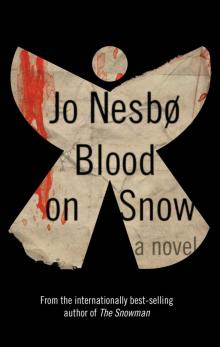 Blood on Snow: A novel
Blood on Snow: A novel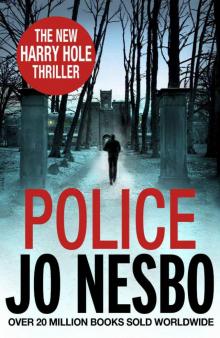 Police: A Harry Hole thriller (Oslo Sequence 8)
Police: A Harry Hole thriller (Oslo Sequence 8)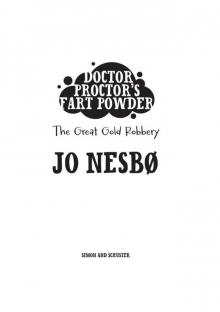 Doctor Proctor's Fart Powder: The Great Gold Robbery
Doctor Proctor's Fart Powder: The Great Gold Robbery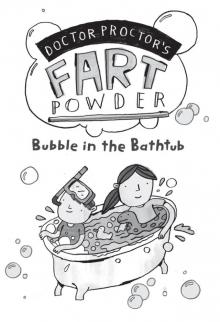 Bubble in the Bathtub
Bubble in the Bathtub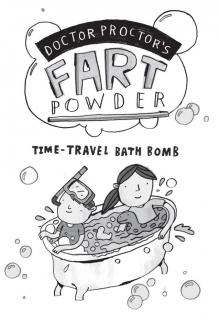 Doctor Proctor's Fart Powder: Time-Travel Bath Bomb
Doctor Proctor's Fart Powder: Time-Travel Bath Bomb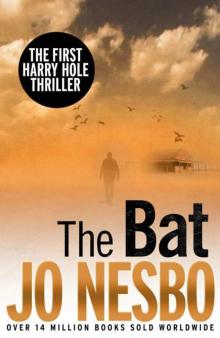 The Bat
The Bat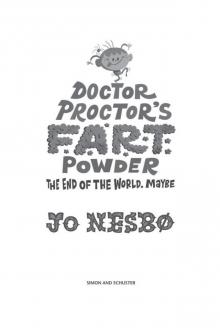 Doctor Proctor's Fart Powder: The End of the World. Maybe.
Doctor Proctor's Fart Powder: The End of the World. Maybe.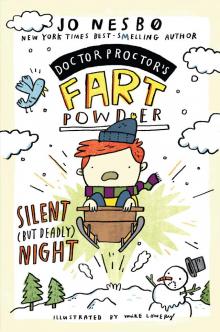 Silent (but Deadly) Night
Silent (but Deadly) Night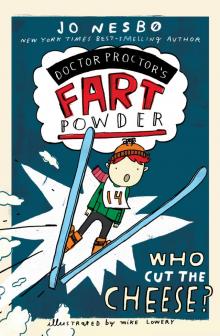 Who Cut the Cheese?
Who Cut the Cheese? Headhunters
Headhunters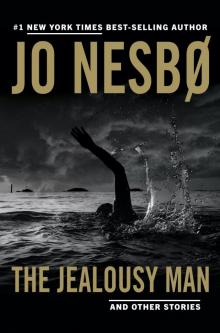 The Jealousy Man and Other Stories
The Jealousy Man and Other Stories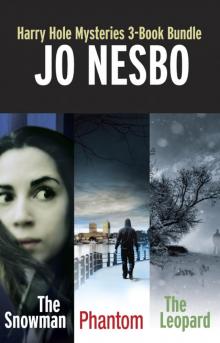 Harry Hole Mysteries 3-Book Bundle
Harry Hole Mysteries 3-Book Bundle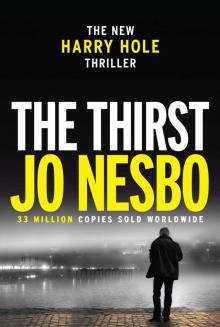 The Thirst
The Thirst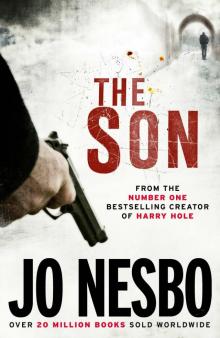 The Son
The Son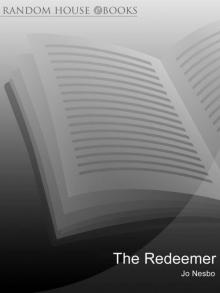 The Redeemer
The Redeemer The Kingdom
The Kingdom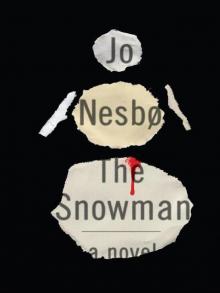 The Snowman
The Snowman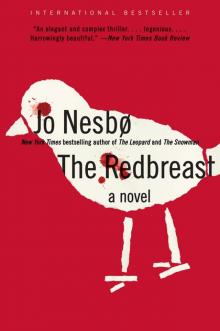 The Redbreast
The Redbreast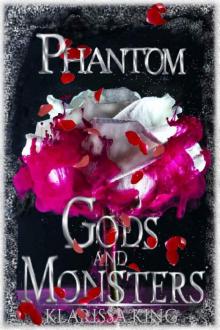 Phantom
Phantom Macbeth
Macbeth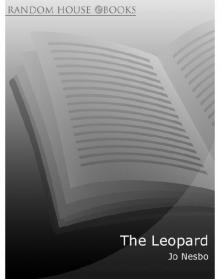 The Leopard
The Leopard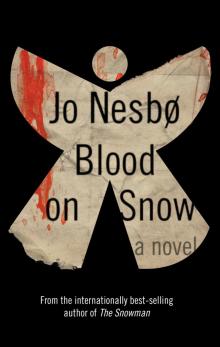 Blood on Snow
Blood on Snow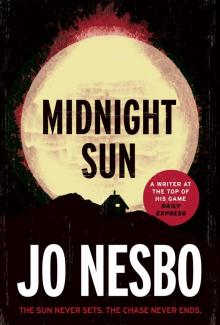 Midnight Sun
Midnight Sun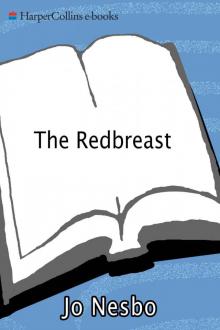 The Redbreast (Harry Hole)
The Redbreast (Harry Hole)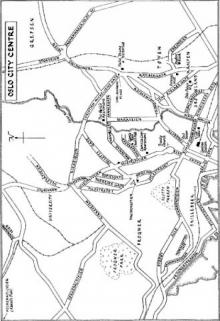 The Devil's Star
The Devil's Star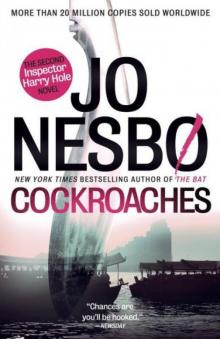 Cockroaches
Cockroaches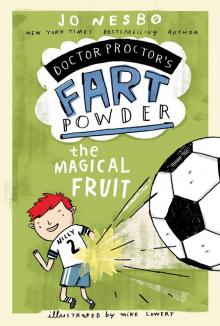 The Magical Fruit
The Magical Fruit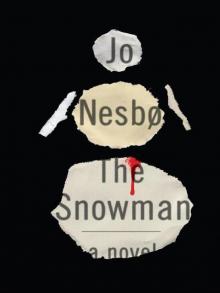 The Snowman: A Harry Hole Novel
The Snowman: A Harry Hole Novel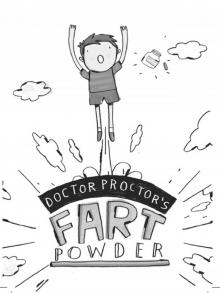 Doctor Proctor's Fart Powder
Doctor Proctor's Fart Powder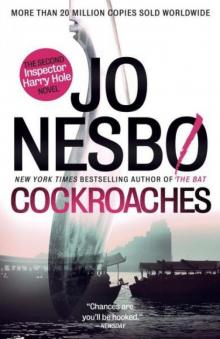 The Cockroaches
The Cockroaches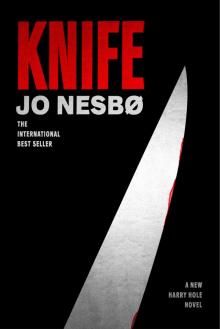 Knife
Knife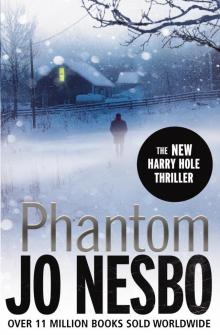 Phantom hh-9
Phantom hh-9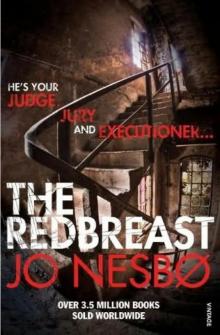 The Redbreast hh-3
The Redbreast hh-3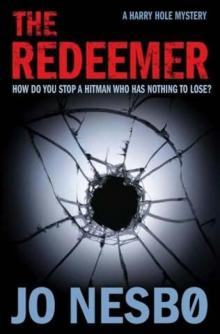 The Redeemer hh-6
The Redeemer hh-6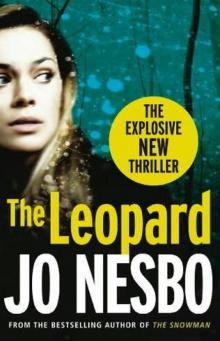 The Leopard hh-8
The Leopard hh-8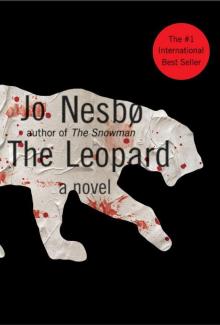 The Leopard: An Inspector Harry Hole Novel
The Leopard: An Inspector Harry Hole Novel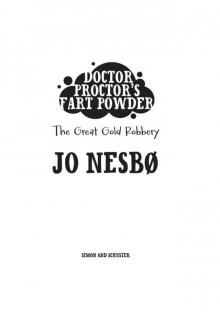 The Great Gold Robbery
The Great Gold Robbery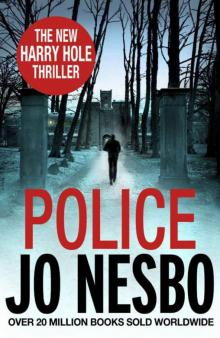 Police hh-10
Police hh-10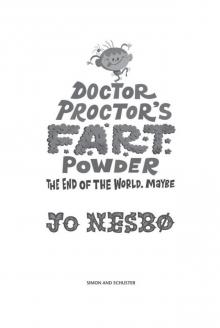 The End of the World. Maybe
The End of the World. Maybe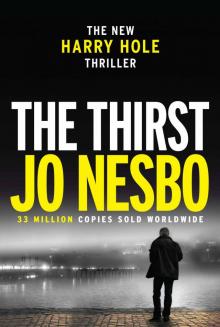 The Thirst: Harry Hole 11
The Thirst: Harry Hole 11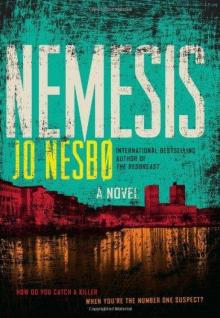 Nemesis - Harry Hole 02
Nemesis - Harry Hole 02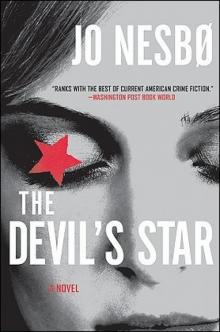 The Devil's star hh-5
The Devil's star hh-5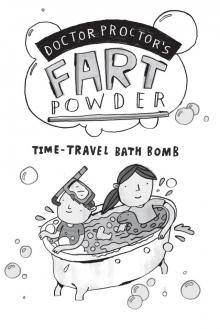 Time-Travel Bath Bomb
Time-Travel Bath Bomb